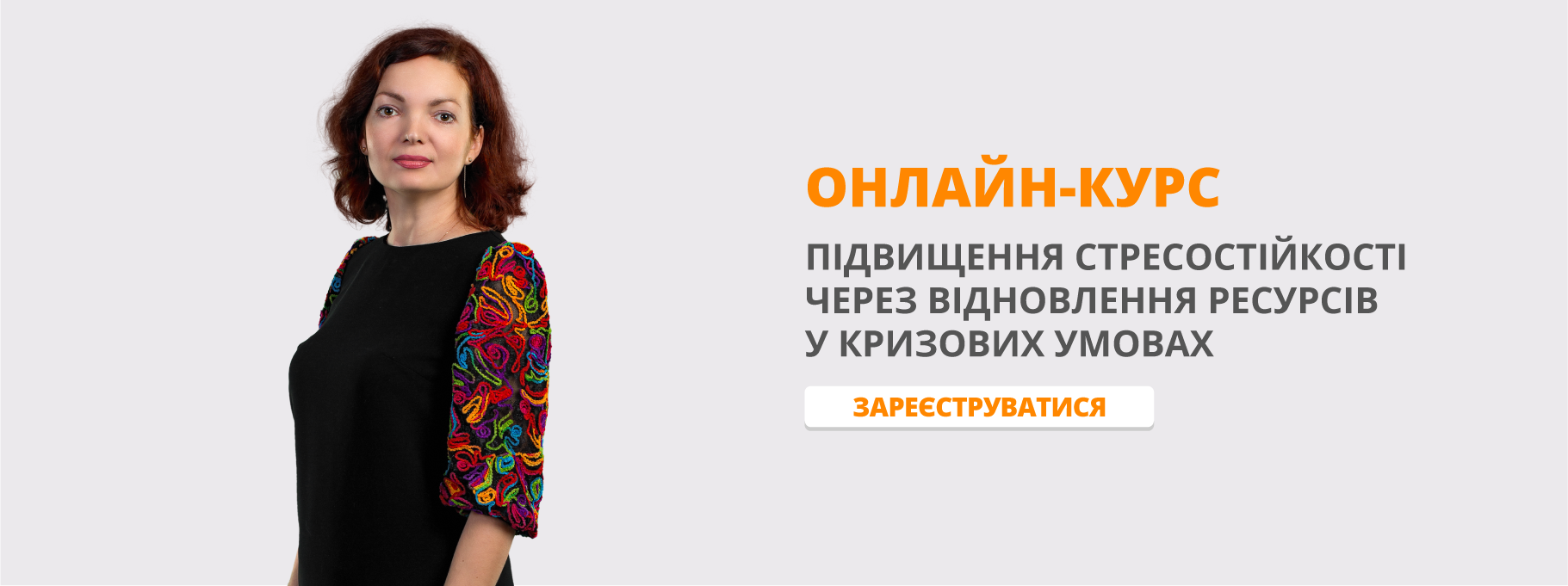Розробка уроків до теми "Обєднане Королівство "
Урок 1
Тема уроку. Об’єднане Королівство Великобританії та Північної Ірландії
Підтема. Географічне положення. Загальна характеристика. Нові лексичні одиниці.
Мета уроку. 1. Ознайомити учнів з новою лексикою до теми «Великобританія» та активізувати її вживання в мовленні.
2. Практикувати учнів у читанні тексту з метою отримання загального уявлення та максимально повного й точного розуміння всієї інформації, що міститься в тексті.
3. Виховання від учнів інтересу до країни, мову якої вони вивчають.
Обладнання. Підручник, географічна карта Великобританії.
ХІД УРОКУ
-
Підготовка до сприйняття іншомовного мовлення.
- Повідомлення теми та мети уроку.
T: The topic of our today’s lesson is “The Geographical position of the United Kingdom of Great Britain and Northern Ireland”.
By the end of the lesson, you should be able:
- To recognize and understand new word combinations in the text;
- To read and understand the gist and details desprite the natural difficulties;
-
To participate in common conversational exchanges about the topic of todays lesson.
-
Уведення в іншомовну атмосферу.
- T: Listening to a joke “Fathers and sons”.
-
Уведення в іншомовну атмосферу.
Father: Why where you kept in at school yesterday?
Son: I didn’t know where the Azores were.
Father: Well in future just remember where you put things.
- Discussion.
T: Do you find this joke funny?
Do you want to be like this son or father?
Do you like geography lesson?
Do you know much about different countries and plans in the world?
Is it important for an educated person to know a lot of things in different branches?
Do you try to know more about the huge world around us?
- Geography quiz. Вікторина.
- Which island is the largest in the world? (Greenland)
- Which river is the longest in the world (Nile in Africa)
- Why is the largest ocean called Pacific? Who gave it this name? (It was called so by Magellan. During his round-the-world voyage the Pacific Ocean was absolutely calm).
- What is the resemblance between Kyiv, Ottawa and London? (They are the capitals of the countries)
- Black, Red, White, Yellow – what word (not “colour”) can added to each of these to put them all in the same group? (Sea)
- What countries make up Great Britain? (England, Scotland & Walles)
- Is there a capital of Europe? (Europe is a continent, not a country, it has no capital).
- What another name does the English Chanel have? (La Manche)
- Is the UK an European country? (Yes, it is. It lies in the Northwest of Europe)
- The largest island in Europe (Great Britain).
ОСНОВНА ЧАСТИНА УРОКУ
- Уведення та активізація нових лексичних одиниць.
a) representing new words and their pronunciation. Пред’явлення лексичного матеріалу. Read the words, word combinations with their translation.
Great Britain
Northern Ireland
United Kingdom
Europe
British Isles
English Channel
Irish Sea
North Sea
Norwegian Sca
North Channel
Atlantic Ocean
Highlands
Scotland
The Pennine Range
Cambrian
Wales
Thames
London
Liverpool
Manchester
Glazgow
official
island
mainland
separated
narrow
surrounded
harbour
- Practice. Підібрати пару. Match the pairs.
|
1 |
Narrow |
A |
материк |
|
2 |
Mainland |
B |
Великобританія |
|
3 |
Atlantic Ocean |
C |
Гавань |
|
4 |
United Kingdom |
D |
Вузький |
|
5 |
Harbour |
E |
Атлантичний океан |
|
6 |
Great Britain |
F |
Англійський канал |
|
7 |
Official |
G |
Сполучене Королівство |
|
8 |
English Channel |
H |
офіційний |
Key: 1d; 2a; 3e; 4g; 5c; 6b; 7h; 8f.
Пред’явлення тексту для читання.
The official name of the country we usually call “England” and occasionally “Great Britain” is the United Kingdom of Great Britain and Northern Ireland. The United Kingdom is situated on the group of islands lying just off the main land of north-western Europe. The British isles include Great Britain, Ireland and a number of smaller islands. The total area of the British Isles is 325,000 square km.
Great Britain is separated from the Continent by the English Channel. The British Isles are surrounded by the Irish Sea and the North Sea, the Norwegian Sea, the North Channel and the Atlantic Ocean.
Post reading activities.
Етап перевірки розуміння прочитаного.
- Answer the questions:
- What is the official name of the country we call Great Britain?
- Is United Kingdom situated on the mainboard?
- What is the total area of the British Isles?
- What is the Great Britain separated from the continent by?
- What are the British Isles surrounded by?
Подання граматичного матеріалу.
- Discussion grammar.
Запропонувати учням пригадати які допоміжні дієслова вживаються у Present Indefinite Tense. (Навести приклади).
Запитати в учнів, що вони знають про активний і пасивний стан та про правильні і неправильні дієслова. (Навести приклади)
(Якщо учні не знають, то вчитель пояснює їм або наводить приклади і приводить до висновку, що у неправильних дієсловах змінюється форма слова)
Завдання: перекласти речення на українську мову:
- Great Britain is washed by the Atlantic Ocean.
- Our classroom is washed by the pupils every day.
- These newspapers are read by our pupils very often.
- This collection of stamps is collected by my grandfather.
- The school meeting is held in our school every Monday.
ЗАКЛЮЧНА ЧАСТИНА УРОКУ
- Домашнє завдання:
- Вивчити нові лексичні одиниці, читати текс.
- Скласти п’ять речень у пасивному стані
- Підведення підсумків уроку.
Оцінити роботу учнів.
T: Your marks are …
Запитати, що було зроблено на уроці.
Урок 2
Тема уроку. Об'єднане Королівство Великобританії та Північної Ірландії
Підтема. Гори і річки Великобританії
Мета уроку:
- Продовжувати знайомити учнів з географічним положенням Великобританії.
- Тренувати учнів в діалогічному і монологічному мовленні по темі «Великобританія».
- Виховання в учнів свідомого ставлення до вивчення країни, мова якої вивчається.
Обладнання:географічна карта Великобританії.
Хід уроку
І. Підготовка до сприйняття іншомовного мовлення.
1. Повідомлення теми та мети уроку.
Т: The topic of our today's lesson is "The Geographical position of Great Britain " (rivers and mountains). By the end of the lesson you should be able:
• to speak in dialogues about Gr. Br.
• to give a comparative characteristics of the geographical position of Ukraine and Gr. Br.
• to be able to revise the grammar material - Present Indefinite Tense (Passive)
П. Уведення в іншомовну атмосферу:
Game: " Odd One Out" Find the odd one out and say why. Example: green, big, orange, brown. Big. All the other words denote colours.
1). June, July, January, spring, May.
2). Paris, Kyiv, New York, London.
3). Africa, Europe, Asia, Great Britain.
4). The Dnieper, The Thames, The Bug, The Dniester.
5). Warm, nice mica, damp, beautiful.
6). Atlantic Ocean, the Black Sea, The North Sea, the Sea of Azov.
II. Фонетична зарядка: автоматизація навичок вимови географічних назв
(робота з "flash cards" та демонстрація їх на карті).
III. Перевірка домашнього завдання.
А.
- What is the official name of Gr. Br.?
- Where is it situated?
- What parts does the United Kingdom consist of?
- What parts does Gr. Br. consist of?
- What city is the capital of Gr. Br.?
В. Техніка читання тексту.
IV. Основна частина уроку.
1. Аудіювання тексту «Гори і річки Великобританії»
There are wild mountains in the Northern Highlands of Scotland. The Penning Range in Northern England and the Cambridge Mountains in Wales are much lower. The highest mountain in Gr. Br. is Ben Nevis in Scotland. The rivers of the region are short. The longest of them is the Severn. It is in the South West of England. River Thames is not so longer as Severn. Britain's principal ports are London, Liverpool, Manchester and Glasgow. They have splendid harbours.
V. Контроль розуміння в режимі Т —» de; Т —> p1 р2 рз;
VI. Робота в парах. (Драматизація діалогу):
- This is map of the world. What can you see on it?
- We can see oceans and continents. There are six continents.
- What are they?
- They are Europe, Asia, Australia, America and Antarctic.
- What else can you see on the map?
- We can also see seas and rivers, mountains and valleys.
- What countries can you show us?
- This is the United Kingdom of Great Britain and Northern Ireland.
- And do you know what the capital of the United Kingdom of Great Britain and Northern Ireland is?
- Yes. I know. It is London.
VII. Продовження роботи над граматичним матеріалом,
а) робота над правильними і неправильними дієсловами:
- поставити дієслова в потрібній формі.
VIII. Підведення підсумків уроку.
IX. Домашнє завдання: скласти свій діалог. Вправа № сторінка
Урок 3
Тема уроку. Великобританія
Підтема. Клімат Великобританії
Мета уроку:
- Ознайомлення учнів з новою лексикою до теми «Клімат Великобританії» та активізувати її вживання в мовленні.
- Практикувати учнів в читанні тексту з метою отримання загального уявлення та максимального розуміння всієї інформації, що міститься в тексті.
- Виховання в учнів інтересу до країни, мову якої вони вивчають.
Обладнання: географічна карта Великобританії.
Хід уроку
I. Підготовка до сприйняття іншомовного мовлення.
1. Повідомлення теми та мети уроку.
Т: The topic of our today's lesson is "The climate of Great Britain " By the end of the lesson you should be able:
• to recognize and understand new words and word combinations in the text.
• to read and understand the gist and details despite the natural difficulties.
• to participate in common conversational exchanges about the topic of today's lesson.
II. Перевірка домашнього завдання в режимі Т —» с; Т —> р1 р2 рз;
- What mountains are there in Great Britain?
- What is the highest mountain in Great Britain?
- Are the rivers short or long in Great Britain?
- What is the longest river in Great Britain?
- What river does London stand on?
- What are principal parts of Great Britain?
2. Монологічне мовлення по темі «Гори і річки Великобританії».
III. Основна частина уроку.
1. Введення та активізація нових Л О:
|
Oceanic |
[כƒienik ] |
океанічний |
|
gulf 1 |
[q ^lf] |
затока |
|
Gulf Stream |
[q^lf stri:m ] |
Гольфстрім |
|
Average |
[evsreid3 ] |
в середньому |
|
Prevailing |
[ priveiliŋ ] |
який переважає |
|
rainfall ; |
[reinfכ I ] |
кількість опадів |
|
fog (s) |
[rכq] |
туман |
|
meadow (s) |
[‘med כu] u ] |
луг |
|
Heath |
[ hi:0 ] |
степ. |
IV. Пред'явлення тексту для читання.
Due to the geographical position of Gr. Br. the type of the climate is oceanic. There are no extreme contrasts in temperature in Britain because of the current of warm water flowing from the gulf of Mexico called the Gulf Stream.
Average British temperatures do not rise above 32° C in summer and do not fall bellow - 10° C in winter.
The prevailing winds from ocean to the south - west bring rainfall throughout the year. March and June are driest monthes. September to January are the wettest.
The fogs of London made severe by mixture with city smoke, have worldwide reputation.
The rivers of the Gt.Br. never frees. A large area of land is covered by meadows and heaths, [hi:] . The grass remains green all the year round.
V. Етап перевірки розуміння прочитаного:
- What kind of climate does Gr. Br. have?
- Are there extreme contrasts in temperature? Why?
- What are the average temperatures?
- What are the driest (the wettest) months?
- What can you say about fogs in Gr. Br.?
- Do the rivers of Gr. Br. freeze?
- What is the land covered by?
VI. Oral practice activities. Колективна робота у формі змагань між групами: учні
отримують картки з завданнями:
Describe:
![]() geography
geography
mountains of Gr.Br.
and rivers
climate
Команди по черзі описують географічне положення, річки і гори, клімат. Кожне правильно оформлене речення оцінюється в 1 бал.
VII. Складання реклами:
Т: І want you to make an advertisement of Gr. Br. as one of the beautiful countries of the world. You advise pupils to visit this country. In your speech use the phrases:
If you are interested in the history and culture visit..
- this country is worth seeing ...
- this is a very interesting place to visit...
- don't waste your time and visit...
VIII. Самостійна робота.
T: use the map of Gr. Br. to complete the text given below:
The two largest islands in British Isles are ...1... and ...2... . They are three
countries in Great Britain. They are ... 3...4,,. and ... 5.....6... 1 ies to the West
of Great Britain. ...7... is a smaller island than Gr. Br.. The North Sea is in the 8 .. of the island, to the .. 9 . is the Atlantic Ocean and to the South is ... 10
Key: 1. Gr. Br, 4. Scotland 10. English Channel
- Ireland 5. Wales 8. East
- England 6. Scotland 9. West
IX. Повторення правил утворення Present Indefinite (Passive)
X. Домашнє завдання.
XL Підбиття підсумків уроку.
УРОК 4
Підтема: Населення Великої Британії.
Мета: повторити звуки та букви, практикувати правильну артикуляцію англійських звуків. Ввести нову лексику теми „Населення Великої Британії”. Ввести модальне дієслово саn.
Обладнання: підручник, картинки з зображенням прапорів та жителів Британії, текст фонетичної вправи, граматичні таблиці.
ХІД УРОКУ
-
Підготовка до сприйняття іншомовного мовлення
- Привітання.
Stand up, please! Good morning, children!
Sit down, please! Get ready for the lesson! (Опитування чергового учня)
2. Мовна практика.
Розучування вірша.
Betty bought a bit of butter
But she said her butter’s bitter
But a bit of better butter
Will make her bitter butter better!
2.Основна частина уроку
1. Контроль домашнього завдання.
2. Пред’явлення лексичного матеріалу.
Vocabulary:
1. single state – єдина держава
2. separate – окремий
3. Celtic ['keltik] - кельтський
4. Gaelic ['geilik] - гельський
5. Welsh [welJ] - валійський
6. regardless of – незалежно від
7. distinction — відмінність
8. regard — вважати
9. society —суспільство
10. inhabitant — житель
11. density — густота
12. area – район, область
13. government – уряд
14. identity – індивідуальність, відмінна риса
3. Активізація вживання ЛО в тексті. Активізація розвитку навичок читання з метою отримання точного розуміння всієї інформації, що міститься в ньому.
The Population of the British Isles: THE FOUR NATIONS
The British Isles are the home of four nations — English, Scottish, Welsh and Irish. People often refer to Britain by another name. They call it “England”. But this is not strictly correct, and it can make some people angry. England is only one of the four nations of the British Isles (England, Scotland, Wales and Ireland). Their political unification was a gradual process that took several hundred years. It was completed in 1866 when the Irish Parliament was joined with the parliament for England, Scotland and Wales in Westminster, so that the whole of the British Isles became a single state — the United Kingdom of Great Britain and Ireland. However, in 1922, most of Ireland became a separate state.
In 1993 the population of the United Kingdom was about 58 million inhabitants. This figure gives a population density of 600 persons per square mile (284 per square km).
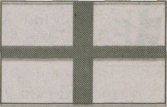
ENGLAND
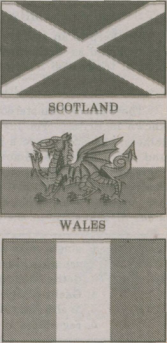
IRELAND
The Scots, Welsh and Irish regard themselves as largely Celtic peoples, while the English are mainly Anglo-Saxon in origin.
At one time the four nations were distinct from each other in almost every aspect of life. In the first place, they were different racially. The people in Ireland, Wales and highland Scotland belonged to the Celtic race; those in England and lowland Scotland were mainly of Germanic origin. This difference was reflected in the languages they spoke. People in the Celtic areas spoke Celtic languages:
Irish Gaelic, Scottish Gaelic and Welsh. People in the Germanic areas spoke Germanic dialects (including the one which has developed into modern English). The nations also tended to have different economic, social and legal systems.
Today these differences have become blurred, but they have not completely disappeared. Although there is only one government for the whole of Britain, and people have the same passport regardless of where in Britain they live, some aspects of government are organized separately (and sometimes differently) in the four parts of the United Kingdom. Moreover, Welsh, Scottish and Irish people feel their identity very strongly.
Questions:
1. How many nations live on the British Isles? What are they?
2. When did Great Britain become a single state?
4. What was the population in 1993?
3. What people regard themselves Celtic?
4. What people regard themselves to be of Anglo-Saxon origin?
5. In which aspects were four nations different?
6. Have differences completely disappeared by now?
3. Розвиток навичок монологічного мовлення.
Read the sentences and insert the missing words.
Single, distinction, society, area, inhabitants, density, government, separate
- In 1866 the British Isles became a … state — the United Kingdom of Great Britain and Ireland. However, in 1922, most of Ireland became a … state.
- Robert was interested in football and his brother was fond of tennis.it was the only … between them.
- I have a nice flat near the central park in a good … of London.
- The population of the United Kingdom was about 58 million … . This figure gives a population … of 600 persons per square mile.
- Taras Shevchenko became a real hero in the eyes of the Ukrainian … .
- The … of our country does everything possible to protect its … .
Check yourself! Can you say what is wrong?
The British Isles are the home of five nations — English, Britons, Scottish, Welsh and Irish. England is the only nation of the British Isles. In 1995 the population of the United Kingdom was about 58 million inhabitants. The Scots, Welsh and Irish regard themselves as largely Anglo-Saxon peoples, while the English are mainly Celtic in origin. People in the Celtic areas spoke Celtic languages. People in the Germanic areas spoke Russian dialects (including the one which has developed into modern English). There is only one government for the whole of Britain, but people have three passports regardless of where in Britain they live.
4. Тренування учнів в аудіюванні.
Listen to interesting information associated by British people with one or more of the four nations.
NAMES

The prefix “Mac” or “Mc” in surnames (such as McCall, MacCarthey, MacDonald) is always either Scottish or Irish. The prefix “O” (as in O’Brien, O’Hara) is distinctly Irish. A very large number of surnames (for example, Davis, Evans, Jones, Lloyd, Morgan, Price, Rees and Williams) suggest Welsh origin.
CLOTHES
The kilt, a skirt with a tartan pattern worn by men, is a very well-known symbol of Scottishness (though it is hardly ever worn in everyday life).
MUSICAL INSTRUMENTS
The harp is an emblem of both Wales and Ireland. The bagpipes are regarded as distinctively Scottish (though a smaller type is also used in traditional Irish music).
CHARACTERISTICS
There are certain stereotypes of national character which are well-known in Britain. For instance, the Irish are supposed to be great talkers, the Scots have a reputation for being careful with money, and the Welsh are famous for their singing ability. These characteristics are, of course, only caricatures and are not reliable descriptions of individual people from these countries. Nevertheless, they indicate some slight differences in the value attached to certain kinds of behaviour in the countries concerned.
Перевірка розуміння почутого.
Fill in the table according information you learned from the text
|
|
Scottish |
Irish |
Welsh |
|
Bagpipe |
|
|
|
|
MacDonald |
|
|
|
|
Williams |
|
|
|
|
Kilt |
|
|
|
|
Harp |
|
|
|
|
O’Hara |
|
|
|
|
great talkers |
|
|
|
|
great singers |
|
|
|
|
Jones |
|
|
|
5. Пред’явлення граматичного матеріалу. Модальне дієслово CAN.
|
CAN |
|
|
(можливість що-небудь зробити) |
|
|
I can play the piano. (вмію) He can answer the question. (мoже)
|
I cannot swim. (не вмію) He cannot understand. (не може)
|
|
Can you sing? (чи вмієте?) Can you help me? (чи можете?) I could not ski when I was little. (не вмів) She could not jump so high. (не могла)
|
|
Практикування учнів у вживанні граматичного матеріалу.Вправа 1. Перекладіть на українську мову.
- Her grandmother can knit very well. 2. I can answer the questions. They are very easy. 3. This trip is too expensive for me. I can't afford it. 4. She can type. She can speak well on the telephone. She hopes she can find the job she's looking for. 5. Can you go to have lunch with me? — I'm sorry. I can't. 6. Mike can run very fast. 7. They can understand French. 8. Kate can speak English.
Вправа 2. Ознайомтеся з перекладом англійських прислів’їв і заповніть пропуски дієсловом can у стверджувальній або заперечній формі. Вивчіть прислів’я.
1) You ... bring a horse to the water, but you ... make him drink. (Не усього можна домогтися силою.)
2) You ... teach an old dog new tricks. (У старості важко переучуватися.)
3) You ... be in two places at once. (Ви не можете знаходитися в двох місцях одночасно)
Перетворіть стверджувальні речення на запитальні.
Example: I can climb mount Everest. — I can't climb mount Everest.
1) Max can read maps.
2) Rita can feed a shark.
3) I can drive a train.
4) We can tell you the truth.
5) You can cut an onion without tears
3. Заключна частина уроку
1. Домашнє завдання.
Вивчити нові ЛО. Вправа 1.
- Підбиття підсумків.
- Закінчення уроку.
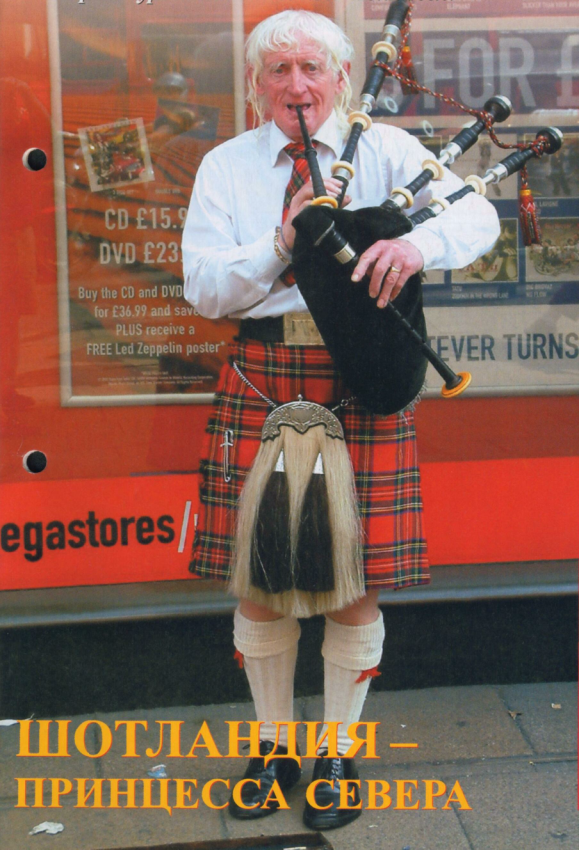
УРОК 5
Підтема: Промисловість Великої Британії.
Мета: повторити звуки та букви, практикувати правильну артикуляцію англійських звуків. Ввести нову лексику теми „Промисловість Великої Британії”. Ввести модальне дієслово must та активізувати вживання модального дієслова can.
Обладнання: підручник, картки з граматики, текст фонетичної вправи, граматичні таблиці.
ХІД УРОКУ
-
Підготовка до сприйняття іншомовного мовлення
- Привітання.
Stand up, please! Good morning, children!
Sit down, please! Get ready for the lesson! (Опитування чергового учня)
2. Мовна практика.
Розучування вірша.
A wise old owl sat in an oak
The more he heard, the less he spoke
The less he spoke, the more he heard
Follow the example of the old wise bird.
2.Основна частина уроку
1. Контроль домашнього завдання.
2. Пред’явлення лексичного матеріалу
highly-developed – високо розвинений
main - головний
branches of industry – галузі промисловості
leading centre – головний центр
chief - головний
produce - виробляти
gross domestic product – валовий внутрішній продукт
goods - товари
petrochemical - нафтохімічний
demand - вимога
account for - відповідати
agriculture – сільське господарство
3. Активізація вживання ЛО в тексті. Активізація розвитку навичок читання з метою отримання точного розуміння всієї інформації, що міститься в ньому.
INDUSTRY OF GREAT BRITAIN
Great Britain is known to be a highly-developed industrial country. The main branches of industry are ship-building, machine-building, metal industry, chemical and textile industry. The main industrial centres are London, Birmingham, Manchester, Leeds, Glasgow, etc. The leading centres of the textile region are Liverpool and Manchester. Manchester is the chief cotton manufacturing city. Every town produces certain kinds of yarn and fabrics. Plants producing textile machinery not only satisfy the needs of British industry, but also export great quantities of machinery to other countries. Great Britain exports motor-cars, agricultural tractors, railway and motor vehicles, cotton and wollen fabrics and other things. About 1/4 of its gross domestic product comes from the export of goods and services. The notable growth has been seen in electrical and instrument engineering, mechanical engineering, food, paper, printing and publishing. It is the world's tenth largest steel producer and a major producer of alloys used by aerospace, electronic, petrochemical and other industries. Its chemical industry is the 3rd largest in Europe and 5th largest in the western world. The British aerospace industry is the 3rd largest in the world. The clothing industry, one of the largest in Europe, meets about 2/3 of domestic demand, and the wollen industry is one of the world’s largest.
Great Britain is the 5th largest trading nation in the world. Export of goods and services is equivalent to ¼ of gross domestic product. Banking, finances, insurance, business services account for 14 percent of the British economy’s total output. Over 3/4 of Britain’s landscape is used agriculture.
Answer the questions
- Is Great Britain a developed country?
- What branches of industry are developed in GB?
- What leading centres of GB do you know?
- What does GB export?
- Is the wollen industry one of the world’ largest?
- What part of Britain’s land is used for agriculture?
Try to guess what industrial centres are described.
- The leading centres of the textile region are … .
- The chief cotton manufacturing city is … .
- … is known to be a highly-developed industrial country.
- … produces certain kinds of yarn and fabrics.
3. Розвиток навичок монологічного мовлення
Look at the table below and answer the question: What country has the same capital as Great Britain in the whole?
THE UNITED KINGDOM OF GREAT BRITAIN AND NOTHERN IRELAND
STATE COUNTRY
CAPITAL
PEOPLE
LANGUAGE
|
Great Britain
|
London
|
the British
|
English
|
|
England
|
London
|
the English
|
English
|
|
Scotland
|
Edinburgh
|
the Scots
|
Scottish
|
|
Wales
|
Cardiff
|
the Welsh
|
Welsh
|
|
Northern Ireland
|
Belfast
|
the Irish
|
Irish
|
b) Use the table and name the capitals:
c) Work in pairs. Ask and answer each other about the people, the language, the capital of each of the parts of Great Britain.
Work in groups of four. Imagine you are working as experts in industry. Prepare a report about one of the leading centres of GB using vocabulary.
Пред’явлення граматичного матеріалу. Модальне дієслово MUST
|
MUST |
|
Необхідність, обов’язок; заборона (у заперечних реченнях) |
|
You must respect your parents. (повинен, мусиш, треба) You must not go there. (не можна) Must I learn it? (чи повинен? чи треба?) |
|
Припущення |
|
It must be cold outside. (напевно, мабуть) |
Практикування учнів у вживанні граматичного матеріалу.
Перекладіть на українську мову.
1.You must work hard at the lesson.
2. It must be very difficult to learn Chinese.
3. Don’t ring him. He must be very busy.
4. I don’t believe you. You must be joking!
5. She must stop eating too much!
6. You must not talk at the lesson.
Вправа 1. Заповніть пропуски поданими дієсловами відповідно до своєї особистої думки.
can can't must mustn't
1) A woman ... become the President of Ukraine.
2) We ... find life on another planet.
3) People ... live on the Moon.
4) People ... live in the Antarctica.
5) We ... play hockey in summer.
6) Sharks ... be dangerous.
7) Doctors ... find a cure for cancer.
8) Parents ... understand their children perfectly.
9) We ... read at the table when we eat.
10) We ... take bread with a fork.
3. Заключна частина уроку
1. Домашнє завдання.
Вивчити нові ЛО. Вправа 1.
- Підбиття підсумків.
- Закінчення уроку.
УРОК 6
Підтема: Міста Великої Британії.
Мета: повторити звуки та букви, практикувати правильну артикуляцію англійських звуків. Ввести нову лексику теми „Міста Великої Британії”. Ввести модальне дієслово may та закріпити вживання can і must.
Обладнання: підручник, картинки з зображенням міст Британії, текст фонетичної вправи, граматичні таблиці.
ХІД УРОКУ
-
Підготовка до сприйняття іншомовного мовлення
- Привітання.
Stand up, please! Good morning, children!
Sit down, please! Get ready for the lesson! (Опитування чергового учня)
2. Мовна практика.
Розучування вірша.
Where are you going to, my little cat
I’m going to town to buy a hat
What? A hat for a cat? A cat in a hat?
Who ever saw a cat in a hat?
2.Основна частина уроку
1. Контроль домашнього завдання.
2. Пред’явлення лексичного матеріалу.
Vocabulary:
resort - курорт
communication - спілкування
trade centre – торговий центр
consist of – складатися з
ancient - стародавній
concerned with – пов’язаний з
seaside resorts – морські курорти
manufacture – виробництво
medieval - середньовічний
sailors - моряки
fishermen – рибалки
to be proud of - пишатися
3. Активізація вживання ЛО в тексті. Активізація розвитку навичок читання з метою отримання точного розуміння всієї інформації, що міститься в ньому.
The Towns of Great Britain
The centre of everything in Great Britain is the city of London. It's situated at the centre of a vast national and international network of communication. London consists of four main districts, which differ from each other. These are the City, Westminster, the West End and the East End.
The other towns, situated to the north of the Thames are Oxford and Cambridge.
Oxford was first mentioned in recorded history in the tenth century and later became an important trade centre in medieval times, then it developed into leading educational centre.
Cambridge is also best known for its ancient university. Its industries are mostly concerned with electronics which has an international reputation.
Bristol dominates South-west England, both as the regions largest seaport and as its largest city. It is a major centre of metallurgy, aircraft and chemical industries.
Of the towns situated in the south of England the largest ones are Southampton, Portsmouth and Brighton.
Southampton is primarily a seaport, the most important on the south coast.
Brighton is one of the most popular seaside resorts of Britain. It has mild climate, warm sea and wonderful beaches.
Manchester is a city of ancient origin. By the 17th century it was great commercial city, a centre of textile industry. Now engineering along with clothing manufacture are most important industries there.
Sheffield, situated in South Yorkshire, produces almost two-thirds of the country's alloy steel, it is famous for its tools and cutlery. Other industries include paper making machinery and food processing.
In North Yorkshire the largest town is York. Its leading industries are engineering and manufacture of confectionery. York attracts many tourists because of its famous medieval city walls.
3. Розвиток навичок монологічного мовлення.
Questions:
1. Are London industries varied?
2. Oxford is an important trade centre, isn't it?
3. What can you tell about Bristol?
4. Where is Sheffield situated?
5. What other cities of Great Britain do you know?
Say true or false.
- London consists of four main districts, which differ from each other. These are the City, Westminster, the West End and the East End.
- Cambridge is also best known for its ancient music school.
- Brighton is one of the most popular seaside resorts of Britain. It has mild climate, warm sea and wonderful beaches.
- York leading industries aren’t engineering and manufacture of confectionery. York attracts many tourists because of its famous painted city walls.
- Bristol dominates South-west England, both as the regions largest seaport and as its largest city.
4. Тренування учнів в аудіюванні.
Listen to the text till the end and tell the class everything you remember about British towns.

Such cities as Plymouth, Portsmouth and Liverpool are big ports, where many sailors and fishermen live.
Stratford-upon-Avon is a very interesting town and the birthplace of famous Shakespeare. Here is a church where he is buried.
Everyone in Britain speaks English. But in some parts of Scotland and Wales people speak different languages as well. The Welsh are especially proud of their language. They like to speak Welsh, to sing songs in Welsh and when you travel you can see road signs in Welsh all over Wales.
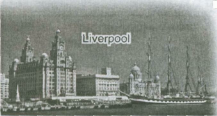
Everyone in the UK speaks English but they all speak it differently. A Scottish person has to listen carefully if he wants to understand a Londoner or a Welsh person.
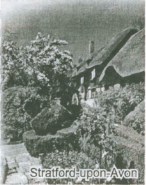
Make a list of the cities and towns you've learned from the text. Use a map and speak about their location.
Тренування учнів в усному мовленні.
Read the dialogue and say why Helen is much interested in English language.
Diana: Hi. Helen! Haven't seen you for ages. How are you?
Helen: Just fine, thanks, and you? It's been a long time since I saw you. Diana: I saw you last in the library. You were preparing for your favourite subject - English, of course.
Helen: True. I think English is the most popular language nowadays.
People speak English all over the world. In Ukraine and France, in Germany and Italy, in
Spain and Egypt people learn English as a foreign language.
Diana: I know they do. And in what countries do people use English as their native language?
Helen: In Great Britain, the USA, Canada, Australia and New Zealand. These are
English-speaking countries.
Diana: So in all these countries people speak the same language, don't they?
Helen: My answer is "yes" and "no". It is a little different in each of these countries.
They often name the same things with different words.
Diana: What do you mean?
Helen: I mean that people live in flats in England but they live in apartments in America. They eat cookies and candies in the USA, but biscuits and sweets in Great
Britain. Children go to school in the fall in America but in autumn in England.
Diana: That's very interesting indeed.
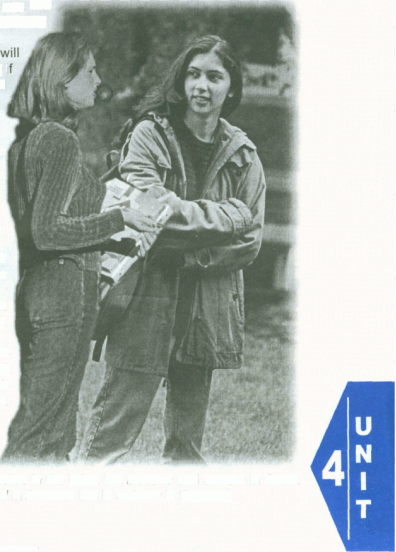
Answer the questions:
1) What did you learn about English language?
2) Do the people of English-speaking countries speak the same language?
3) Do you know American equivalents for the British words "biscuits", "sweets", "autumn"?

Act out the dialogue. Work in pairs.
Choose a partner and talk to him about the English-speaking countries and their symbols.
Пред’явлення граматичного матеріалу. Модальне дієслово MAY
|
MAY |
|
ДОЗВІЛ(можна) |
|
You may take my pen. (можете) You may not touch it. (не можна) May I come in? (чи можна) У непрямій мові: Mother said that I might play. (сказала, що можна) |
|
Припущення (може бути, можливо) |
|
It may rain soon. (можливо піде дощ) Be careful: you may fall. (можеш впасти) |
Практикування учнів у вживанні граматичного матеріалу.
Перекладіть на українську мову.
1. May I invite Nick to our house? 2. You may go now. 3. If you have done your homework, you may go for a walk. 4. Don't go to the wood alone: you may lose your way. 5. May I go to the post office with Mike? 6. May I take Pete's bag? 7. Don't give the vase to the child: he may break it. 8. May we take notes with a pencil? 9. You may not cross the street when the light is red. 10. May I shut the door? 11. It stopped raining, and mother told us that we might go out. 12. May children play with scissors? 13. They may travel by sea. It may be cheaper, but it takes a long time. 14. It may be true. 15. May I come and see you? 16. Where have you been, may I ask?
Вправа 1. Прочитайте фрагменти діалогів, заповнюючи пропуски поданими дієсловами. Посніть свій вибір.
can mustn't can't may
At the Shop
— ... (1) I help you?
— Yes, please. ... (2) I have a pair of black jeans?
— Yes, certainly. Here they are.
— ... (3) I try them on?
— Yes, please.
At School
— ... (4) we talk to the principal right now?
— No, you ... (5). He is very busy at the moment.
— ... (6) we see him later?
— Yes, sure. But you ... (7) disturb him now.
At Home
— ... (8) you help me to find my glasses?
— Sure I ... (9).
3. Заключна частина уроку
1. Домашнє завдання.
Вивчити нові ЛО. Вправа 1.
- Підбиття підсумків.
- Закінчення уроку.

1


про публікацію авторської розробки
Додати розробку
